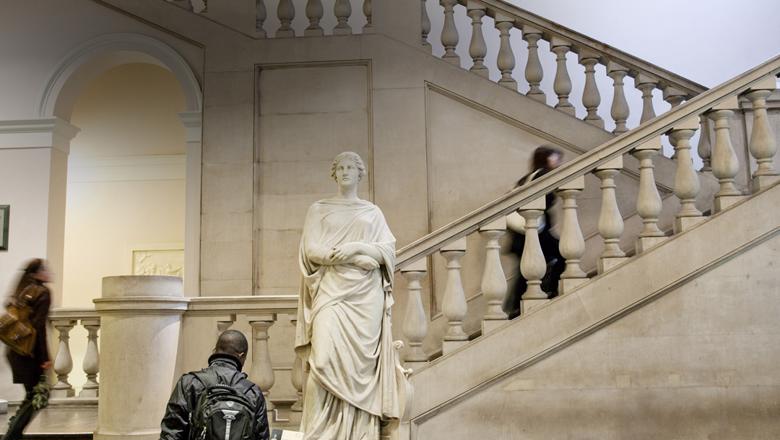Features editor Govhar Dadashova offers an in-depth overview of the upcoming European elections, examining the EU’s structure and who voters expect to see at the polls.
Feeling confused about the EU election? Let’s unpack it.
It feels like all anyone is talking about right now are elections. Our news feeds seem to be preoccupied with prospective candidates, flashy slogans, and the constant reminder that exercising our democratic duty as citizens is critical. If you are feeling overwhelmed or overstimulated, it is completely normal. To make your life easier, here is everything you need to know about the upcoming elections for the European Parliament. Whether you are a citizen of the European Union (EU) or simply curious about the elections, this will be a comprehensive but concise guide.
What is the European Parliament and what is at stake?
First and foremost, what are the European elections? Who are they for and what do they decide? The EU is extremely complex and has a variety of institutions which fulfil various legislative, executive, and judicial functions. It currently has 27 member states, spread across Western and Eastern Europe. All eligible voters in these countries can head to the polls from 6-9th June in order to decide which representatives they want in the European Parliament. The exact day and the duration for which they can vote varies depending on the country itself. For instance, the Netherlands will start allowing votes on Thursday, whilst Italy has allocated Saturday and Sunday for its citizens.
Now, what does the Parliament do? It has over 700 members, whose chief responsibility is to make the final decision (alongside The Council of the European Union) on whether legislation proposed by the European Commission actually passes. This is an important bit of information to remember. While the Parliament has the final say on whether a piece of legislation actually passes, meaning it can make amendments or adjustments, it is the Commission and not the Parliament that creates legislation. In this sense, it differs from Westminster, where any MP can introduce a bill. That being said, the Parliament is crucial for two key reasons. First, it is a true reflection of EU citizens, because they directly elect Members of the European Parliament (MEPs). Second, its ability to adjust or amend legislation is really an example of its negotiation power.
What happens in Parliament decides not only niche areas of politics but also major ones. For example, global agreements with EU partners or where and how the EU will spend its money. Furthermore, elections for the Parliament take place every five years. Whatever voters decide over the next few days will have long-term impacts.
In addition, the Parliament helps decide the shape and form of the Commission. It gets to approve members for the Commission, which acts as an executive body for the EU. As established, the Commission proposes policies that act as a sort of figurehead for the rest of the EU. That is why you will often see the familiar face of its President, Ursula von der Leyen, on the news. All of this means that these elections are important not only for electing MEPs but for the entire day-to-day running of EU business.
Who are voters going to the polls for?
Each EU member state has a different amount of representatives, depending on the size of its population. For instance, Germany has the largest amount of MEPs at 96, whilst Malta has the least with 6. As always, even MEPs reflect important dynamics within the EU between smaller and bigger states. Apart from independent MEPs, there are roughly seven general ideological groups for MEPs to be part of. There are rules for creating groups, such as ensuring that 25% of member states (at minimum) are represented. They all sit on different ends of the ideological spectrum.
For example, the European Conservatives and Reformists group is hard-right, as well as the Identity and Democracy group. The evolution of these different political groups in Parliament is interesting to consider because it has not often been straightforward. For instance, the European Conservatives and Reformists group was first established by the British Tories during David Cameron’s premiership in 2009. This means it started with scepticism over the relationship between the EU and the state sovereignty of its member states.
As time passed, with more right-wing MEPs joining its ranks, the group developed stronger national-conservative views. It now hosts Italian Prime Minister Giorgia Meloni and her Brothers of Italy party, alongside the Polish Law and Justice party. Both of which have received their fair share of commentary (and criticism) for their controversial right-wing views. In the case of the latter, democratic backsliding has also been a significant issue.
There is a lot to play for in this election, and each political group in the Parliament will have something to say. However, POLITICO has made an important intervention in election news coverage, showing the possible issues that voters in each member state will be thinking about when they head to the polls. When it comes to the EU, it can be easy to fall into the trap of thinking that everything is static or already fixed. With such complex infrastructure, it can feel like some things or some actors will never change. Nevertheless, as we have established, even political groups in Parliament can drastically alter depending on their composition.
Of course, even deciding which issues matter to voters is subjective and depends on who you ask. That being said, it remains a useful way of reframing the debate. The EU is indeed a supranational institution, but one made up of competing visions, beliefs, and roadmaps.
In my opinion, these elections will not only be a testing ground to see what European citizens genuinely care about, nor solely show whether or not ‘populism’ is truly in fashion but also what our post-COVID world will look like. Has the pandemic, its ensuing socio-economic hardships, and so many other challenges, altered or reinforced the vision of voters? Has it clarified the way they feel about the EU or complicated them? We will have to wait and see in the coming weeks.
What do the statistics say?
According to election forecasts, at the time of writing, the European People’s Party is set to win 171 seats. That is the party which von der Leyen is part of. It is also centre-right and, unlike the hard-right parties mentioned earlier, is very pro-EU. Coming behind them is the Socialists and Democrats Party with 142 seats. The hard-right parties — such as the Conservatives and Reformists or Identity and Democracy — are not predicted to win a majority, but they each will be gaining seats from 2019. It does not mean a far-right takeover, but it does mean they will have more power in Parliament and the ability to have more influence over legislation.
Final thoughts
Whilst polls and election forecasts can shed light on elections, it is also valuable to remember that it can be a self-fulfilling prophecy. At the end of the day, everything is up to play for, whether it is the rise of the far-right or who will become the next President of the Commission. It will be fascinating to see how different groups in society, like first-time voters, will use their power. No democratic system is perfect and it can be all too easy to become disillusioned with its mechanisms.
For a privileged few, this election might not change anything. For others, it could have immediate and harmful consequences for their lives. Even if you regularly follow the news or consider yourself a political expert, it is still worth reading over the policies of each group, understanding which issues are most important to you, and taking the time to think your decision through. Regardless of where you fall, I sincerely hope that if you have the chance to vote in the European elections — or really any election for that matter — you make proper use of it.
Your voice and your vote matter, so show up and show out.














